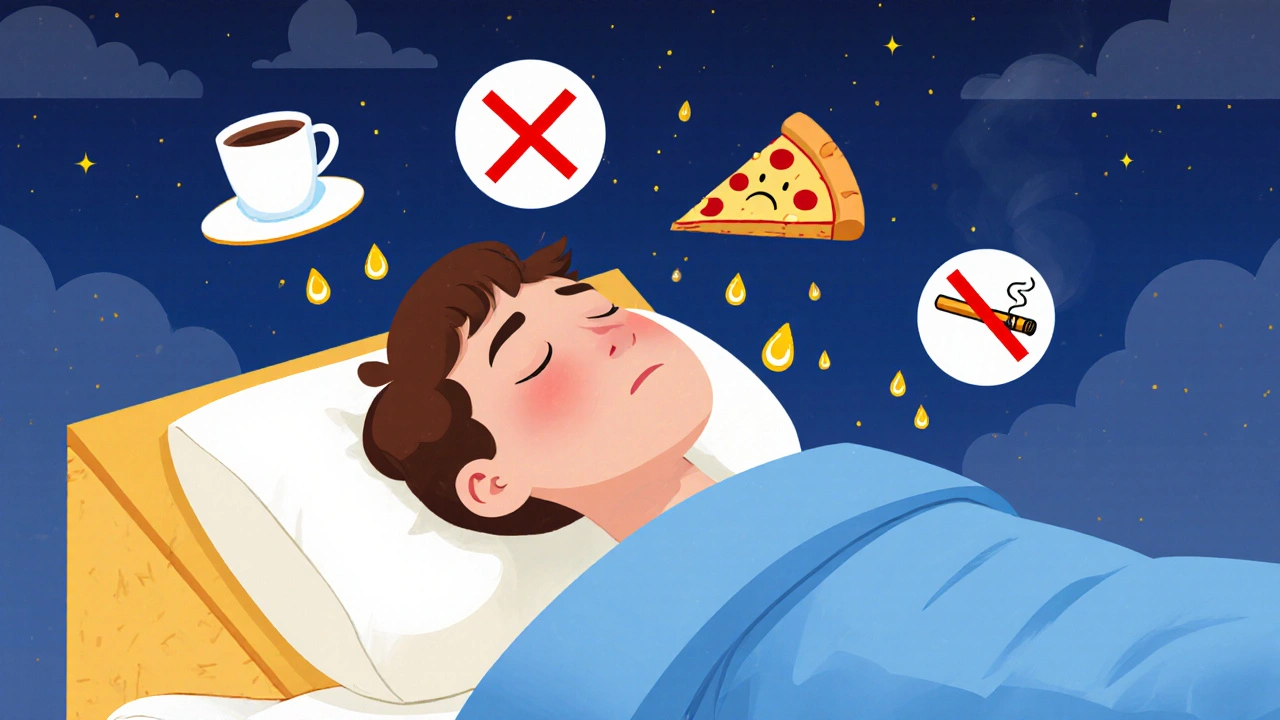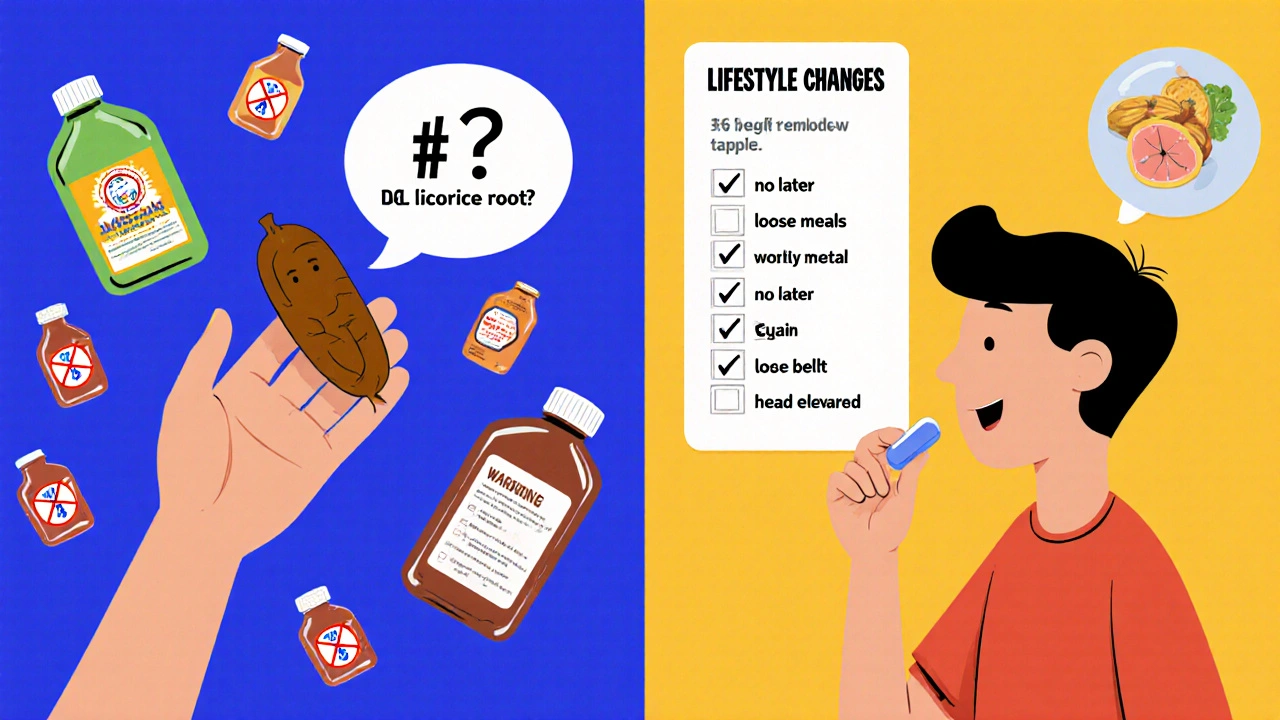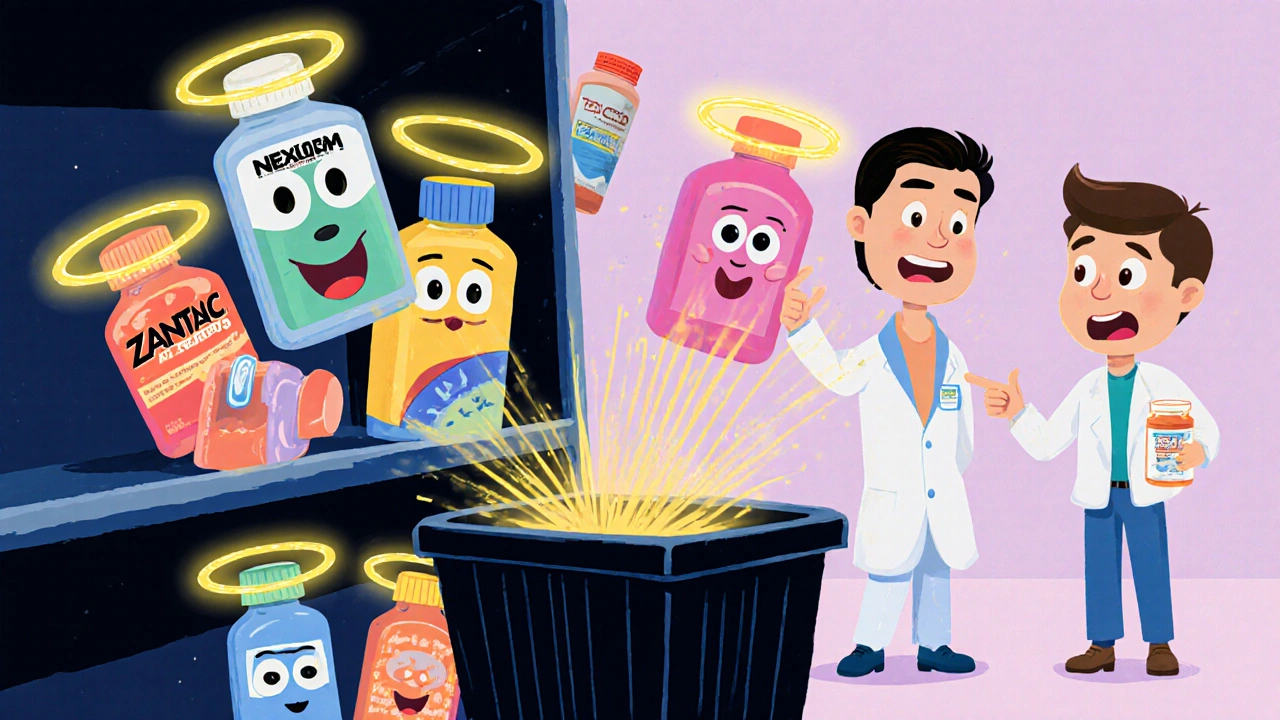Ranitidine Alternative Finder
Which ranitidine alternative is right for you?
This tool helps you choose the best medication based on your symptoms and lifestyle. Just answer a few questions, and we'll recommend the most appropriate alternative to ranitidine.
Question 1: How often do you experience heartburn?
Question 2: How quickly do you need relief?
Question 3: Do you have other health conditions or take other medications?
Back in 2019, ranitidine - better known by the brand name Zantac - disappeared from shelves overnight. Not because it stopped working, but because tests found it contained NDMA, a chemical linked to cancer. Millions of people who relied on it for heartburn, acid reflux, and ulcers were left scrambling. If you’re reading this now, you’re probably one of them. You need relief. You need something safe. And you need to know what actually works.
Why ranitidine is no longer an option
Ranitidine was once the go-to for acid-related stomach issues. It worked by blocking histamine-2 receptors in the stomach lining, reducing acid production. For decades, it was cheap, effective, and widely available over the counter. But in 2020, the FDA issued a full recall. Independent labs found that ranitidine broke down over time, especially in heat or during storage, producing dangerous levels of NDMA. Even if your bottle looked fine, the risk wasn’t worth it. By 2021, every major pharmacy pulled it. No exceptions.
There’s no safe way to use ranitidine today. Not even if you find it online or in an old medicine cabinet. The FDA, TGA (Australia’s Therapeutic Goods Administration), and Health Canada all agree: stop using it. Period.
What works as well as ranitidine?
Good news: there are several proven alternatives. They don’t all work the same way, but they all reduce stomach acid effectively. The two main classes are H2 blockers and PPIs (proton pump inhibitors).
H2 blockers are the closest in function to ranitidine. They target the same receptors, just with safer chemistry. These include:
- Famotidine (Pepcid) - the most popular replacement. It’s available over the counter, works fast, and lasts up to 12 hours. Studies show it reduces acid just as well as ranitidine, without the cancer risk.
- Cimetidine (Tagamet) - older but still used. It can interact with other drugs like blood thinners and antidepressants, so it’s not first-line unless you’re already on it.
- Nizatidine (Axid) - less common in Australia, but still prescribed. It’s fast-acting and has fewer drug interactions than cimetidine.
PPIs are stronger. They shut down acid production at the source - the proton pumps in stomach cells. These include:
- Omeprazole (Losec) - the most common. Takes 1-4 days to reach full effect, but lasts longer than H2 blockers.
- Esomeprazole (Nexium) - a slightly more potent version of omeprazole.
- Lansoprazole (Zoton) - works well for nighttime reflux.
For most people, famotidine is the best direct replacement for ranitidine. It’s available in 10mg, 20mg, and even 40mg doses. You can take it before meals to prevent heartburn, or after to ease symptoms. It’s also cheaper than most PPIs.
When to choose a PPI over an H2 blocker
Not all acid problems are the same. If you’re dealing with frequent heartburn - more than twice a week - or have been diagnosed with GERD or a stomach ulcer, a PPI might be better.
PPIs are more powerful. They reduce acid by up to 90%, compared to 70% for H2 blockers. They’re also the first-line treatment for Barrett’s esophagus and H. pylori infections (when combined with antibiotics).
But they come with trade-offs. Long-term PPI use has been linked to a slightly higher risk of bone fractures, low magnesium levels, and gut infections like C. diff. They’re not meant for daily use unless your doctor says so. Most people take them for 4-8 weeks, then switch to an H2 blocker for maintenance.
Here’s a quick comparison:
| Medication | Type | Onset | Duration | OTC Available? | Key Risks |
|---|---|---|---|---|---|
| Famotidine | H2 Blocker | 1 hour | 10-12 hours | Yes | Minimal |
| Cimetidine | H2 Blocker | 1 hour | 4-6 hours | Yes | Drug interactions |
| Omeprazole | PPI | 1-4 days | 24 hours | Yes | Long-term: low magnesium, bone loss |
| Esomeprazole | PPI | 1-4 days | 24 hours | Yes | Same as omeprazole |
| Lansoprazole | PPI | 1-4 days | 24 hours | Yes | Same as omeprazole |
If you only get heartburn occasionally - say, after spicy food or a big meal - famotidine is your best bet. If you’re burning every night, talk to your doctor about a short course of omeprazole.

Non-medication options that actually help
Medications aren’t the only answer. Lifestyle changes can cut your reliance on pills - sometimes completely.
- Stop eating 3 hours before bed. Lying down with a full stomach is the #1 trigger for reflux.
- Avoid trigger foods. Coffee, chocolate, citrus, tomatoes, alcohol, and fatty meals all relax the lower esophageal sphincter. Track what sets yours off.
- Elevate your head while sleeping. Use a wedge pillow or raise the head of your bed by 6-8 inches. Gravity keeps acid where it belongs.
- Loosen your belt. Tight clothes increase abdominal pressure. That’s like squeezing a tube of toothpaste - acid goes up.
- Quit smoking. Smoking weakens the sphincter and reduces saliva, which naturally neutralizes acid.
One 2023 study in the Australian Journal of Gastroenterology followed 300 people with mild GERD. Half used famotidine daily. The other half made lifestyle changes and used antacids as needed. After six months, both groups had similar symptom relief. The lifestyle group had fewer side effects and saved money.
What about natural remedies?
Apple cider vinegar? Baking soda? Aloe vera juice? These get lots of attention online, but they’re not backed by solid science.
Baking soda (sodium bicarbonate) can neutralize acid - temporarily. But it’s high in sodium and can cause electrolyte imbalances if used often. Apple cider vinegar might make reflux worse for some people because it’s acidic. Aloe vera has no proven effect on stomach acid.
There’s one exception: deglycyrrhizinated licorice (DGL). A few small studies suggest it may help protect the stomach lining. But it’s not a replacement for medication. Think of it as a gentle support, not a solution.

What if you’re still having symptoms?
If you’ve tried famotidine, switched to a PPI, made lifestyle changes, and you’re still waking up with heartburn, it’s time to see a doctor.
Chronic reflux can lead to esophagitis, strictures, or Barrett’s esophagus - a pre-cancerous condition. Your doctor might recommend an endoscopy to check for damage. They might also test for H. pylori, a bacteria that causes ulcers and can worsen reflux.
Don’t ignore persistent symptoms. Just because ranitidine is gone doesn’t mean you have to live with discomfort. There are safe, effective options. You just need the right match.
Final advice: What to do today
Here’s your simple action plan:
- Stop using ranitidine immediately. Throw it away. Don’t give it to anyone else.
- Buy famotidine 20mg. It’s on every pharmacy shelf. Start with one tablet before meals or at bedtime.
- Track your triggers. Write down what you eat and when you get symptoms. Patterns will show up in a week.
- Adjust your habits. Stop eating late. Elevate your head. Cut out alcohol and caffeine for two weeks.
- If symptoms don’t improve in 7-10 days, see your GP. You may need a PPI or further testing.
There’s no need to suffer. The world moved on from ranitidine - and you can too. Better, safer options are right here. You just have to take the first step.
Is it safe to take famotidine instead of ranitidine?
Yes. Famotidine is a different chemical compound that works the same way as ranitidine but doesn’t break down into harmful substances. It’s been used safely for over 40 years and is approved by the FDA, TGA, and WHO. No recalls, no cancer risk.
Can I use antacids like Tums instead of ranitidine?
Antacids like Tums, Rolaids, or Maalox work fast but only last 30-60 minutes. They’re great for occasional heartburn after a meal, but not for regular use. If you need relief more than twice a week, you need something longer-lasting like famotidine or a PPI.
How long should I take omeprazole for?
For most people, 4-8 weeks is enough to heal reflux or ulcers. Long-term daily use (over 3 months) should only happen under a doctor’s supervision. PPIs can affect nutrient absorption and gut health if used too long. After healing, switch to famotidine as needed.
Are there any natural alternatives that work?
There’s no natural remedy that reliably reduces stomach acid like ranitidine did. Lifestyle changes - like avoiding late meals and elevating your head - are the most effective natural approach. Supplements like DGL may help soothe the stomach lining, but they don’t stop acid production.
What if I can’t afford PPIs or famotidine?
Famotidine is usually the cheapest option. In Australia, generic famotidine 20mg costs under $5 for 30 tablets at most pharmacies. Many pharmacies offer discount programs for chronic conditions. If cost is still an issue, talk to your pharmacist - they can help you find the lowest price or suggest government subsidy options.



Cori Azbill
Famotidine? LOL. You think the FDA actually gives a damn about safety? They just needed a new market for PPIs. Big Pharma pulled ranitidine because it was too cheap and people weren’t buying fancy new drugs. I’ve been on famotidine for 6 months - my acid’s worse than ever. They’re all just playing the same game. 🤡